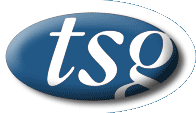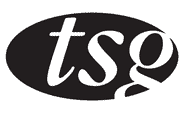|
Service Areas
|
Tax Tips
Are you in a business or profession where you charge disbursements or expenses to your clients? If so, you need to understand how to treat the GST. Otherwise, you can easily end up with a costly GST assessment - or you could be cheating your clients! When putting disbursements on your bill to a client, you must first determine whether the disbursement was incurred “as agent” of the client. This determination is crucial, and you must be clear as to the answer. The CRA has published Policies P-209R, “Lawyers’ Disbursements”, and P-182R, “Agency”, to help with this determination. For example:
If the expense is not incurred as agent An expense that is not incurred as an agent is considered an input to your services. You should claim any GST input tax credit yourself on such an expense. You then bill the pre-GST amount of the expense as a disbursement, added to your fee before charging GST. If you charge GST on your services, you then charge GST on the total including the (pre-GST) disbursement.
The net result may appear to be the same as simply charging $106 to the client as the disbursement and not adding GST. However, if you do that, the CRA may well assess you for not collecting GST on the disbursement! (You may or may not be able to claim the offsetting input tax credit if that happens.) Note also, that with this method, taxable disbursements can become non-taxable, and non-taxable disbursements can become taxable. What matters is the GST status of your fees, not the expense you incurred. Thus, suppose in the above example you are billing a non-resident client and not charging GST on your services. Your subtotal would still be $1,100, with no GST on top for a total of $1,100. Meanwhile, you have correctly claimed the $6 input tax credit, so no net GST applied to the hotel bill you paid. Conversely, suppose your client is in Canada, so you charge GST, but the hotel was outside Canada and did not charge GST. In this case, you paid no GST on the $100 and get no input tax credit, yet when you bill the client, you still bill $1,100 plus $66 in GST. So the hotel bill effectively becomes taxed. (For significant expenses that fall into this group, if your client cannot claim input tax credits, you may want to make other arrangements, such as having the client become directly responsible for the bill and pay it directly to the supplier.) If the expense is incurred as agent An expense that is incurred as agent is simply a “pass through.” You show it on your invoice after all GST is calculated, and you include whatever GST was on the expense. You do not claim an input tax credit for the GST charged on the expense, because you did not incur the expense - you simply paid it as your client’s agent. Thus, for expenses incurred as agent, the original GST status is preserved and passed through to the client. Conclusion This is a tricky area, and many businesses and professionals get it wrong. Yet if you do not properly comply, you expose yourself to assessment for up to four years of past GST, plus interest and penalties, on all your disbursements. And if you mistakenly charge GST on a disbursement when you should not be, or charge GST on top of a GST-included amount, then you are cheating your clients. If you have been reporting GST on disbursements incorrectly in the past, it may be possible to eliminate any net GST cost by way of a Voluntary Disclosure. TAX TIP OF THE WEEK is provided as a free service to clients and friends of the Tax Specialist Group member firms. The Tax Specialist Group is a national affiliation of firms who specialize in providing tax consulting services to other professionals, businesses and high net worth individuals on Canadian and international tax matters and tax disputes. |


